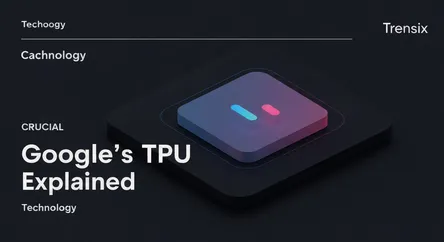Technology
Google's TPU Explained

Discover Google's Tensor Processing Unit (TPU), a custom-built chip designed to accelerate machine learning workloads and power AI applications.
What is it?
A Tensor Processing Unit (TPU) is a custom-built application-specific integrated circuit (ASIC) developed by Google. It's designed specifically to accelerate machine learning workloads, particularly those built with Google's TensorFlow framework. Unlike general-purpose CPUs or even GPUs, which are adapted for AI, TPUs are engineered from the ground up for the high-volume, low-precision computations characteristic of neural network operations. This specialization allows them to perform matrix multiplications—a core component of AI model training and inference—with incredible speed and power efficiency.
Why is it trending?
TPUs are trending because the demand for powerful, specialized AI hardware is skyrocketing. As AI models, like large language models (LLMs), become larger and more complex, they require massive computational resources. TPUs provide a significant performance and efficiency advantage over traditional hardware for these specific tasks. Google's integration of TPUs into its Cloud Platform has made this high-performance computing accessible to developers and businesses worldwide, fueling innovation and pushing the boundaries of what AI can achieve.
How does it affect people?
TPUs have a direct impact on the digital services people use daily. They are the powerhouse behind many of Google's products, including improving search result relevance, identifying objects in Google Photos, and enabling real-time translation in Google Translate. By making AI model training faster and more cost-effective, TPUs also empower researchers to tackle complex challenges in fields like medical diagnostics, drug discovery, and climate change modeling. This accelerates the development of technologies that can improve health, safety, and overall quality of life.